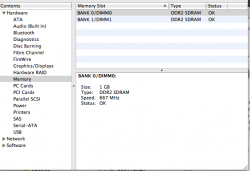Hi all,
I was a Linux user. I bought a macbook pro a month ago. I installed Leopard: every thing is fine... but
I wrote a C program that reads several data files and makes a lot of computations with that. Well in a Linux box with a intel core duo it used to last 10 to 20 seconds to end its job while in my new intel macbook pro it lasts several minutes.
I checked with top and Bigtop and the cpu usage is below 10% and I can't succeed in changing its cpu usage neither with renice. In the Linux the same process used up to 100% of one CPU.
I suspect there is a top cpu usage for the processes that are launched by users, isn't it?
Any idea? can anyone help me with some hints?
thanks in advance
nino65
I was a Linux user. I bought a macbook pro a month ago. I installed Leopard: every thing is fine... but
I wrote a C program that reads several data files and makes a lot of computations with that. Well in a Linux box with a intel core duo it used to last 10 to 20 seconds to end its job while in my new intel macbook pro it lasts several minutes.
I checked with top and Bigtop and the cpu usage is below 10% and I can't succeed in changing its cpu usage neither with renice. In the Linux the same process used up to 100% of one CPU.
I suspect there is a top cpu usage for the processes that are launched by users, isn't it?
Any idea? can anyone help me with some hints?
thanks in advance
nino65


